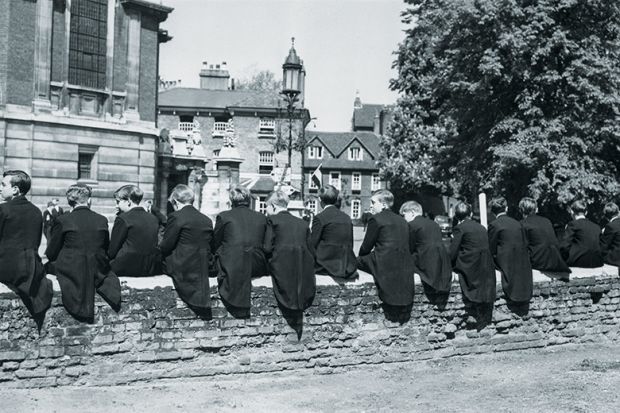Not everywhere is like the United States of America. When Hadas Weiss claims that we must “consider academic degrees whose price is calculated over many years of student-loan repayments”, the dystopia being described is the US and a few of its mini-me copycats such as the UK. Some of the fieldwork for this book was undertaken in Germany, but in Germany student fees are almost non-existent and certainly don’t require loans to repay them.
The very first sentence of this book states that “The middle class does not exist.” This is an argument that relies on anecdote, mostly taken live and direct from the United States. Some 136 pages later, Weiss acknowledges that “The US is perhaps an extreme example.” Too true, but why the “perhaps” and why then rely so much on it? It is hardly the place of the future.
This is a well-written book, stuffed full of interesting references and telling insights about much of that literature. However, if one looks at the data on wealth, income, life chances, mortality rates, debt, imprisonment and precarity in the US, the caveat of “perhaps” would disappear. The anthropological tradition of distrusting numbers means that We Have Never Been Middle Class can never quite get to the core of the issue: distribution.
Earlier in the book it is asserted that “Class is stronger in indicating an external determination of our lives than categories like race, gender and religion”, in which case class does exist and matters as much as race, gender and religion exist and matter. On the very same page, the middle class is defined as the group that spurns the notion that anything but individual effort matters “in a big way”. If that is the case, then again the middle class does exist, as a group of people who behave and believe in a certain way. One page earlier, Weiss claims that “We have come to perceive society as being comprised, quite simply, of middle classes and others.” Have we? I might be an outlier, but I tend to perceive those others as falling into two very distinct groups – those below and those above the middle classes. And those two very different groups are not an “other” to the middle.
This book is most useful in helping make clear that the boundaries between classes are vague, but over-claims when suggesting that “in each country there is too little variance between middle and somewhat lower income brackets to convincingly distinguish their members from one another” (my emphasis). Today’s US is a land of falling working-class life expectancy, multibillion-dollar, middle-class student debt bubbles and growing precarity for all. A call for the somewhat lower income brackets of the world to unite, having nothing to lose but their chains (chains that are only marginally more constraining than the chains that bind almost everyone else), might have a certain appeal there. But when your class is so important in determining your life chances, and when elsewhere in the world the secure middle class is still the dominant class that votes in the dominant conservative politicians, it seems clear that class matters as much as it ever did.
Danny Dorling is Halford Mackinder professor of geography at the University of Oxford.
We Have Never Been Middle Class: How Social Mobility Misleads Us
By Hadas Weiss
Verso, 176pp, £14.99
ISBN 9781788733915
Published 29 October 2019
Register to continue
Why register?
- Registration is free and only takes a moment
- Once registered, you can read 3 articles a month
- Sign up for our newsletter
Subscribe
Or subscribe for unlimited access to:
- Unlimited access to news, views, insights & reviews
- Digital editions
- Digital access to THE’s university and college rankings analysis
Already registered or a current subscriber?







